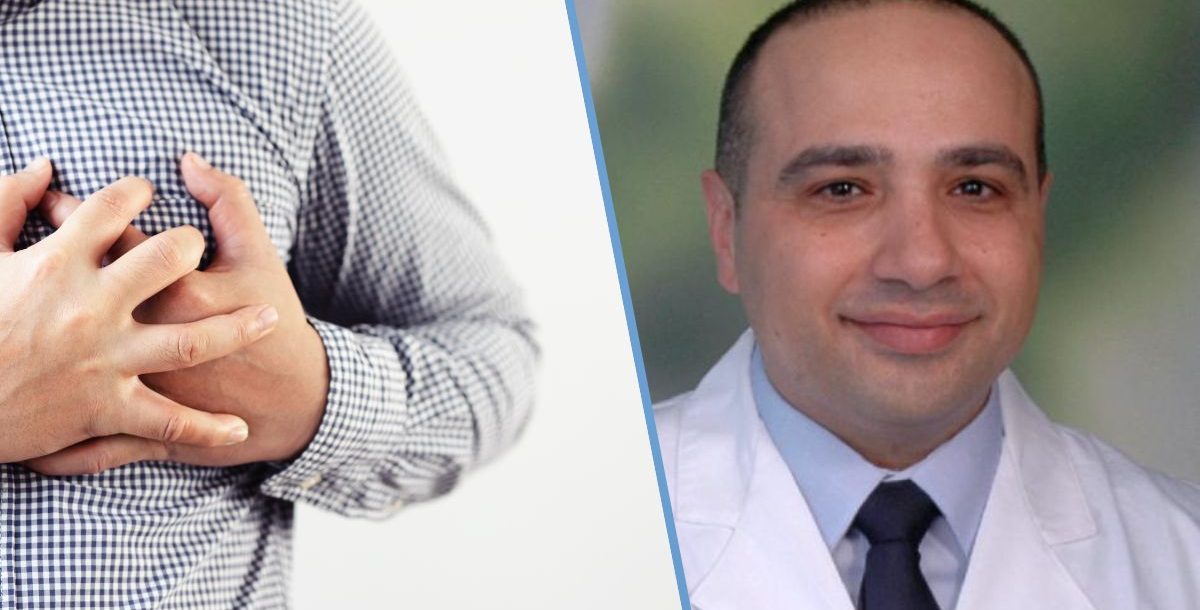Heart attacks are a leading cause of death worldwide, but knowing the signs, risk factors and preventive measures can help save lives.
Ayyash Melhem, MD, a cardiologist at Mercy Health – St. Rita’s Cardiology, shares everything you need to understand about heart attacks and how to protect yourself as well as your loved ones.
What are the symptoms of a heart attack?
The most common symptom of a heart attack is chest pain, often described as a heaviness or tightness in the middle or left side of the chest. However, not all chest pain is the same. Some people may experience pain in other areas, such as the jaw, neck or arms.
Heart attacks can also be associated with other symptoms, including:
- Excessive sweating
- Pain in the shoulders or arms
- Tingling or numbness in the hand
In some cases, heart attack symptoms can be subtler. These include sudden shortness of breath, fatigue or dizziness. This is why it is important to always listen to your body and seek help if you think something is wrong.
Do heart attack symptoms differ between men and women?
Yes! The symptoms of a heart attack can present differently in men and women.
Women, in particular, tend to experience what is known as an “atypical” presentation. While chest pain is common, women may also report symptoms that are harder to link directly to heart problems, such as:
- Stomach pain
- Nausea or vomiting
This variation can make diagnosing heart attacks in women more challenging. Atypical symptoms are also more frequent in older adults and individuals with diabetes.
What should I do if I think I’m having a heart attack?
If you suspect you are having a heart attack, seek immediate medical attention. The sooner you receive care, the better your chances of survival and recovery. Do not wait for symptoms to go away or try to “tough it out” — act quickly!
What are the risk factors for heart attacks?
Several factors can increase the likelihood of experiencing a heart attack. Some are controllable, while others are not.
Key risk factors include:
- Age: The older you are, the greater the risk.
- Hypertension, also known as high blood pressure
- Diabetes and high cholesterol
- Obesity and unhealthy diet
- Smoking or tobacco use
- Genetics: A family history of heart disease can raise your risk
The good news is that many of these risk factors can be managed or minimized with lifestyle changes and medical care.
How are heart attacks diagnosed and treated?
The first step in diagnosing a heart attack is performing an EKG, or an electrocardiogram. This can be done on-site by Emergency Medical Services (EMS). In addition, blood tests, echocardiograms and chest X-rays may be used to confirm the diagnosis.
Once a heart attack is confirmed, a heart catheterization procedure is typically performed to identify the blocked artery. If the blockage is severe, a procedure called angioplasty and stenting may be done. This potentially life-saving intervention restores blood flow to the heart by opening up the blocked artery.
What lifestyle changes can help prevent heart attacks?
Prevention is key to avoiding heart attacks, and lifestyle changes play a significant role.
Here are some ways to reduce your risk:
- Eat a heart-healthy diet rich in fruits, vegetables and whole grains.
- Exercise regularly to maintain a healthy weight and improve heart function.
- Quit smoking and avoid tobacco products.
- Control your health conditions: Regularly monitor and treat conditions like diabetes, hypertension and high cholesterol with the help of your primary care provider.
Regular check-ups and screenings with your primary care provider are essential for early detection and treatment of these risk factors.
Additional information about heart attacks
The most important thing to remember about heart attacks is that prevention is better than cure.
Don’t ignore new or unusual symptoms, and don’t hesitate to discuss any concerns with your health care provider. If you suspect you’re having a heart attack, calling EMS and getting to a hospital as quickly as possible can significantly improve your chances of survival, reduce complications and improve outcomes.
By recognizing the symptoms early and taking preventive measures, you can help protect yourself and your loved ones from the devastating effects of a heart attack.
Learn about the heart and vascular services we provide at Mercy Health.






